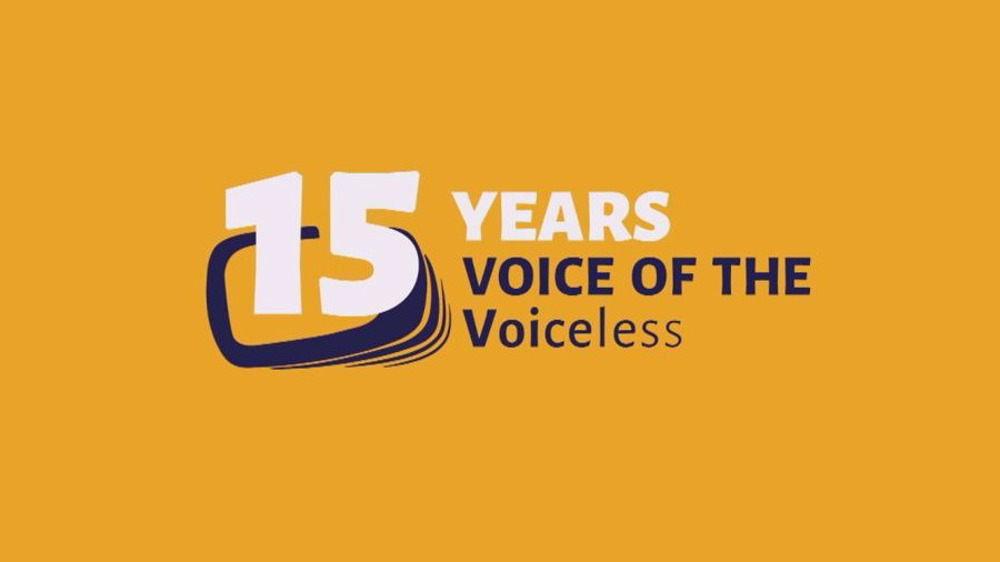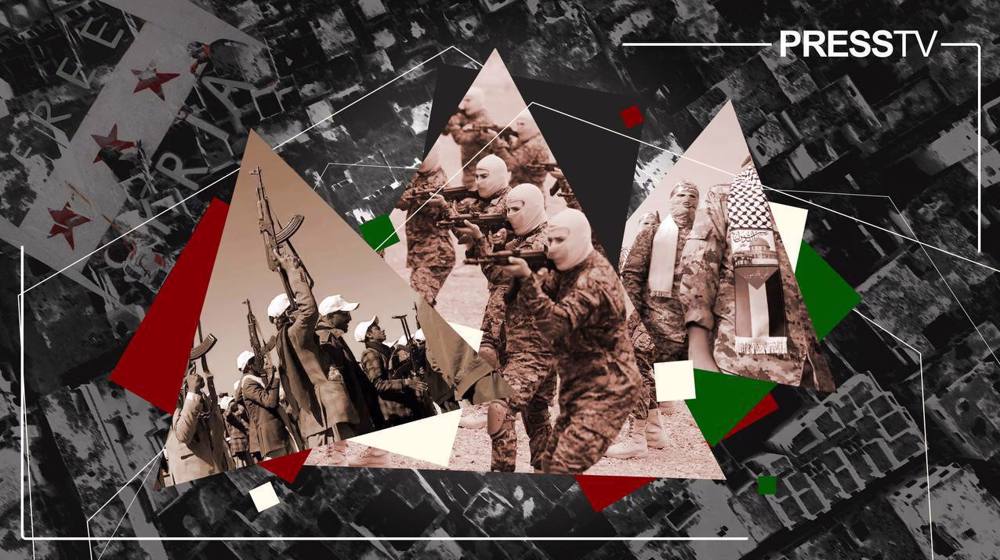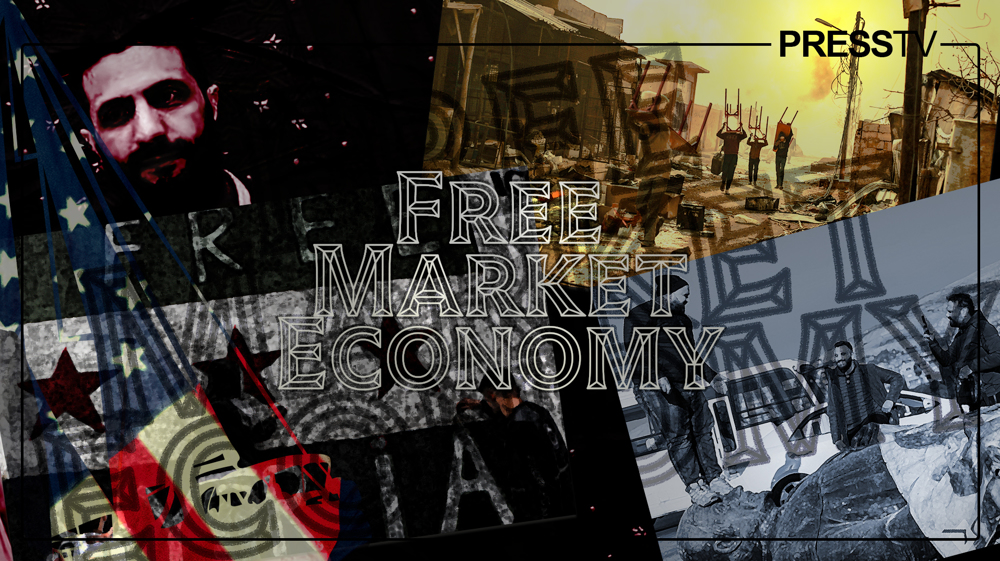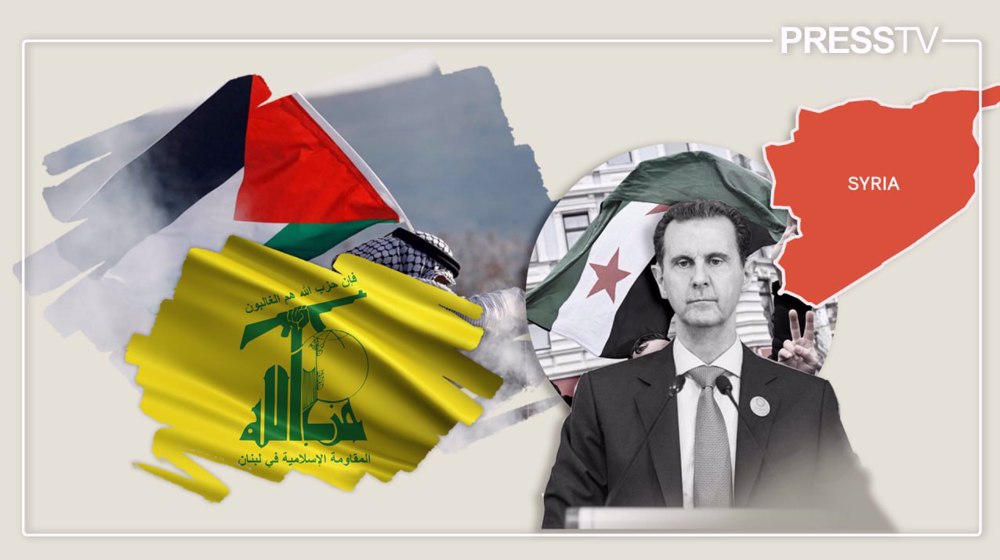Press TV at 15: Debunking Western fallacies, giving voice to the voiceless
By Syed Zafar Mehdi
Press TV this week turns 15. What a momentous and epoch-making journey it has been for Iran's leading international news network, which has over the years emerged as the flag-bearer of the resistance media, and truly lived up to its reputation of being the "voice of the voiceless."
It is incumbent to stress here that Press TV came into existence 15 years ago as a counterweight to Western propagandist media to demolish its deeply flawed narratives and grossly unfair coverage of Iran and the region.
Unlike run-of-the-mill satellite news channels, Press TV didn't explode on the horizon out of the blue. It was the result of meticulous planning and immaculate execution with one specific and clear goal — to counter the Western media's propaganda through cutting-edge reportage and promote the sacrosanct values of journalism that the Western media had decimated.
It won't be a hyperbole to suggest that Western neo-imperial powers have for long weaponized the mainstream corporate media against the Islamic Republic and the resistance axis.
Media imperialism is not a novel phenomenon. It's an integral part of the international political economy, which reveals how the hegemonic empires around the world use media and communications to advance their imperialist adventures.
In the context of Iran and other countries part of the resistance axis, Western powers have used the 'big media' to keep the propaganda mills buzzing, disseminate misinformation, and shape public opinion in line with their sinister agendas.
Press TV's arrival 15 years ago, of course with a proverbial bang, to a great extent helped thwart those obnoxious plots as it challenged the fictitious Western narratives and upheld the truth.
It didn't only speak for the Islamic Republic of Iran, which has been spearheading the global fight against Western hegemony but told the untold stories of those who have been consigned to oblivion, those who have no one to speak for them.
That is the primary function of free, independent, and vibrant media, as we are told in journalism schools — to uphold the truth, prevent the manipulation of facts, unmask the tyrants, and speak for the oppressed, weak and vulnerable.
That's what real, meaningful, and purposeful journalism is all about. Press TV was established on these ideals 15 years ago.
Quite unfortunately, the mainstream corporate Western media has largely contributed to the demise of lofty journalistic values and ethics by becoming shameless mouthpieces and lapdogs of powers that be, and by serving the interests of the US military-industrial complex.
Here, it’s also essential to point to the role played by Press TV in exposing horrendous crimes of the US military-industrial complex in countries such as Afghanistan, Iraq, Syria, Yemen, Palestine, and of course Iran, where it has been killing and maiming people through economic war and crippling sanctions for more than 40 years.
To its credit, Press TV has not faltered in showing how Americans destroyed a beautiful country like Afghanistan, how they invaded and occupied Iraq on the flimsy pretext of WMDs, how they continue to financially and militarily aid the Israeli regime in its unchecked aggression in occupied Palestinian territories, how they continue to be directly complicit in the Saudi-led coalition’s war crimes in Yemen, or how they sponsored foreign mercenaries in Syria.
Press TV’s fair and brutally honest coverage for the past so many years has opened the eyes of the world to these geopolitical realities.
The coverage of the Indian subcontinent, I must acknowledge, has also been truly praiseworthy. No other international media network has reported on the protracted Kashmir conflict for so many years with such professional dedication and honesty. It has forced the world to pay attention to what is widely known as the 'forgotten conflict'.
Press TV has definitely come a long way despite a myriad of challenges and obstacles. The distinction of being the flag bearer of resistance media has put an added responsibility on it to set standards and raise the benchmark.
The fact that it has single-handedly and successfully taken on the 'big media' and its patrons, challenging their domination, demolishing their flawed narratives, and debunking their propaganda, has made the path difficult but equally rewarding.
Success is always measured by the amount of difficulties you face and the enemies you make. Four of Press TV's finest crew of reporters were killed in the line of duty over the past 15 years — Farhad Taghadosi in 2011, Maya Nasser in 2012, Serena Shim and Habibullah Hussainzada in 2017. These intrepid reporters went out of their way to provide free and fearless reportage from ground zero, upholding the best traditions of Press TV.
The network has also faced attacks left, right, and center from its inception, at the behest of the Western powers. Its YouTube channels were deleted at least six times in the past 15 years, it was taken off air on satellites and cable TV in many countries, its web domains were seized by the US authorities, and its pages have for long been shadow-banned by social media giants Facebook and Twitter.
Ironically, ‘free speech advocates in the West, who always harp about the significance of the freedom of expression and free media, and who talk passionately about unrestricted information and its importance in a multi-polar world, have utterly failed to condemn the brazen censorship of Press TV and its social media platforms.
It goes to show their blatant duplicity and double standards and drives home the point that their freedom and free speech are apparently more precious than ours.
Notwithstanding all the hiccups, Press TV continues to stand tall and firm, telling the untold stories, being the voice of the voiceless, and challenging the dubious Western narratives.
It has proved to be the best example of an alternative media with phenomenal success. But the job is not done yet. To invoke Robert Frost, there are still miles to go and promises to keep.
Syed Zafar Mehdi is a Tehran-based journalist, blogger, commentator and author. He has reported for more than 12 years from India, Afghanistan, Pakistan, Kashmir and Iran for leading publications worldwide.
(The views expressed in this article do not necessarily reflect those of Press TV.)
VIDEO | Rome, Milan host new protests in solidarity with Palestinians
Dec. 21: ‘Axis of Resistance’ operations against Israeli occupation
Spain jurists demand ties with Israel ties be cut
VIDEO | Press TV's news headlines
VIDEO | Iran honors top Science Olympiad medalists
VIDEO | Austrians arrested at Gaza protest in Vienna
10 killed in bus crash in western Iran
VIDEO | One-man-band journalism with Civili










 This makes it easy to access the Press TV website
This makes it easy to access the Press TV website